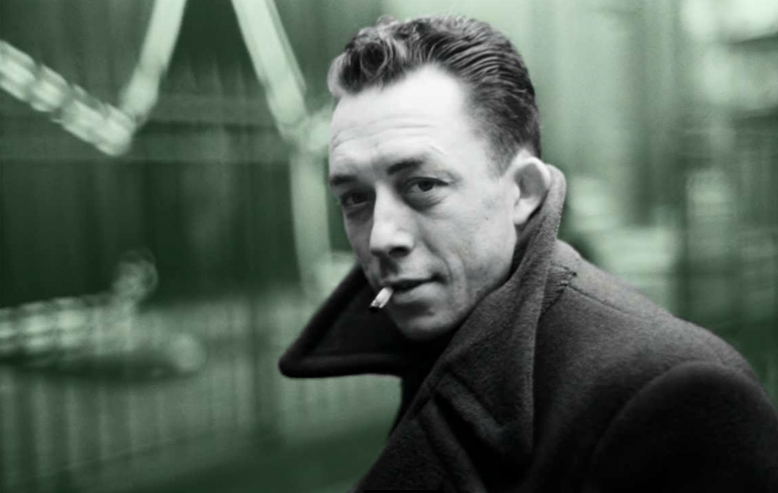
Albert Camus and Jean Grenier met in 1930; Camus was a student at the University of Algiers, Grenier his philosophy professor. Their student-mentor relationship lasted until 1960 and Camus’ death. Camus describes his current work to Grenier as three pieces on a single theme; these are Caligula, L’Étranger, and Le Mythe de Sisyphe.
Saturday [Spring 1940]
I was glad to hear from you, although disappointed to learn you were not in Paris. I really hope you will recover completely and that I will be able to meet you here.
Many things have happened since September and I don’t quite know where we left off. Naturally, life has been as hard for me as it has been for everyone, and I could not accept this was without being torn apart. But these words no longer mean much, and here is the summary of these few months: I enlisted on September 3, not because I was “a supporter,” but because I didn’t want to use my illness as a shield in this situation, and also because I felt solidarity with all the poor fellows who were leaving without knowing why. The draft commission that examined me nevertheless found me unfit and again upheld my exemption. Since then, another commission that had called me up along with other exempted men of my year has exempted me again. During this time, Alger Républicain turned into an evening newspaper, Le Soir Républicain, and it just so happened I was one of the few editors not to be drafted. I was entrusted with the position of editor-in-chief and given full responsibility. So I made it a newspaper reflecting what I believed to be true. Which is to say, I defended freedom of thought against censorship, and war without hate (eventually, peace through negotiation) against public unrest.
I suppose I went far enough in that direction, since the newspaper was banned in January after daily struggles. I went to Oran to do a little teaching, and in March my friend Pia found me a job as assistant editor at Paris-Soir. I do the layout and don’t write a single line. This is the best I could hope for. For the time being I am here. This city is sad and life here is hard when it’s not contrived. But at least it’s useful to those who want to work, and this is what I am doing.
It’s difficult to tell you what I’m thinking. But at least I have chosen to maintain all that I believed to be true in the midst of this rising madness. In the first place – to work. It seems to me that enough values that did not depend on us are in the process of dying so that at least we do not desert those for which we are responsible. I have no illusions as to the fruitfulness of this attitude. But at least it is in my nature, and I am holding on to it.
For a long time I’ve been wanting to begin a certain work, covering many years and presented in several forms. For this I waited to be sure of myself and my abilities. I may not be there today, but I am getting closer, rightly or wrongly. So I work a lot and have made a lot of progress (one play finished, a novel three-quarters written, and half of an essay – all three on the same theme). I cannot see beyond this, and besides, who could be sure of the future? I’m going to be called up again and could be drafted. I am indifferent to this, utterly. Because what affects me in this situation is not the risk of death, but the display of hatred – and that affects me in civilian life as well.
So that’s everything I could tell you about myself. I am surprised, after such a long time, to be able to still speak to you with such trust. But I have always been loyal to you and it is a joy for me to catch up with you. If you can, please write and tell me about yourself. This is what matters to me at the moment.
Perhaps I will go see Jean Wahl. But I always hate to risk bothering someone. But if you think this is not the case, I will gladly do it. I saw Malraux here and other men of merit – but I also met many phonies. Did I tell you that Montherlant wrote to me about Noces and that I found great encouragement in it?
I am awaiting your letter and perhaps your visit as well. And I really hope you will regain all your health. See you soon, and please remember me as your faithful friend
A. Camus
16, rue Ravignan
Paris (18e)
or to Paris-Soir
37 rue du Louvre (2e)


